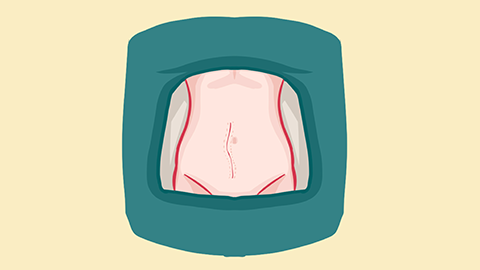Why Can Girls Also Develop Inguinal Hernia?
Common causes of inguinal hernia in young women generally include congenital weakness of the abdominal wall, chronic increased intra-abdominal pressure, pregnancy and childbirth, obesity or rapid weight loss, and abdominal trauma or prior surgical history. A detailed analysis is as follows:

1. Congenital abdominal wall weakness: Some women are born with underdeveloped abdominal muscles or fascia, resulting in weak areas in the abdominal wall. As they age, changes in intra-abdominal pressure may allow abdominal organs such as the small intestine to protrude through these weak spots, leading to hernia formation. This condition is primarily associated with congenital developmental factors.
2. Chronic increased intra-abdominal pressure: Long-term engagement in heavy physical labor, frequent coughing, or straining during bowel movements due to constipation can cause sustained elevation of intra-abdominal pressure. This repeatedly stresses the abdominal organs and gradually enlarges weak areas in the abdominal wall, eventually leading to small intestinal herniation. Individuals who maintain chronically elevated abdominal pressure are at higher risk.
3. Effects of pregnancy and childbirth: During pregnancy, the growing uterus continuously compresses abdominal tissues, causing abdominal muscles to loosen and lose elasticity. During delivery, intra-abdominal pressure rises sharply, further damaging the abdominal wall structure. If postpartum recovery is inadequate, weak areas in the abdominal wall may develop into hernias. This is a common contributing factor among married women.
4. Obesity or rapid weight loss: Excessive abdominal fat accumulation in obese individuals increases strain on the abdominal wall, potentially leading to muscle laxity over time. Conversely, rapid weight loss causes a sudden reduction in abdominal fat, while the muscle tissue fails to adapt quickly enough, increasing the likelihood of abdominal wall weakness. Both scenarios may trigger small intestinal hernia.
5. Abdominal trauma or surgical history: Women who have experienced abdominal injuries or undergone abdominal surgeries may have damaged muscles or fascia, or developed scar tissue. These areas are structurally weaker and become vulnerable sites in the abdominal wall. When intra-abdominal pressure increases, the small intestine may protrude through these compromised areas, resulting in hernia formation.
To prevent hernia development, it is important to avoid behaviors that chronically increase abdominal pressure, such as minimizing heavy physical labor and actively treating chronic cough and constipation. If a reducible lump appears in the abdomen, prompt medical evaluation is essential to avoid delayed diagnosis and treatment.








